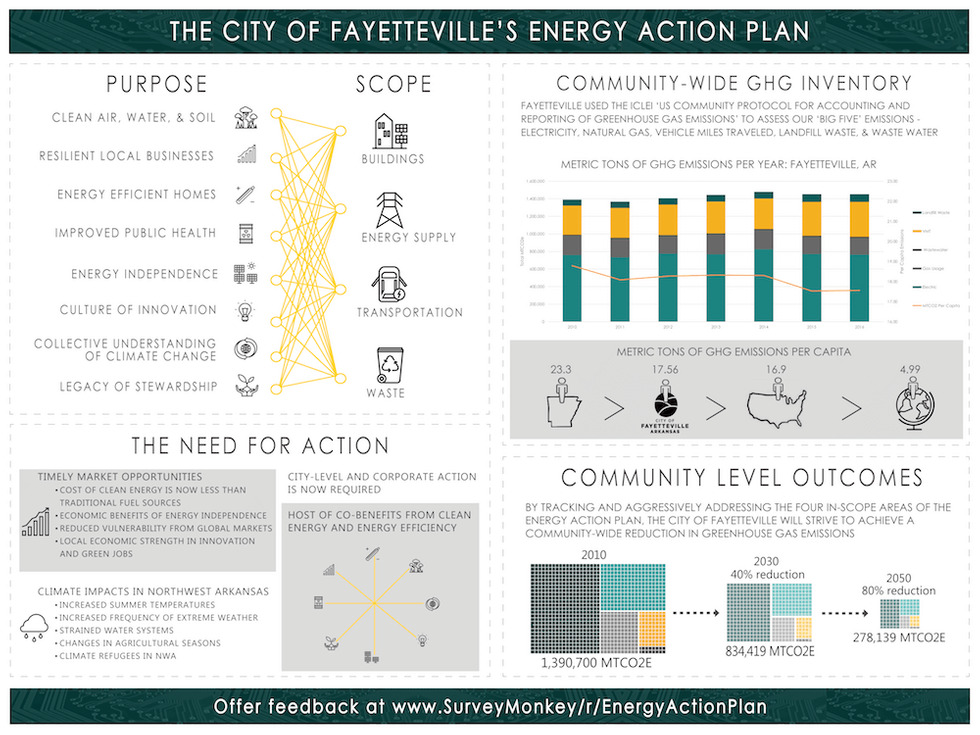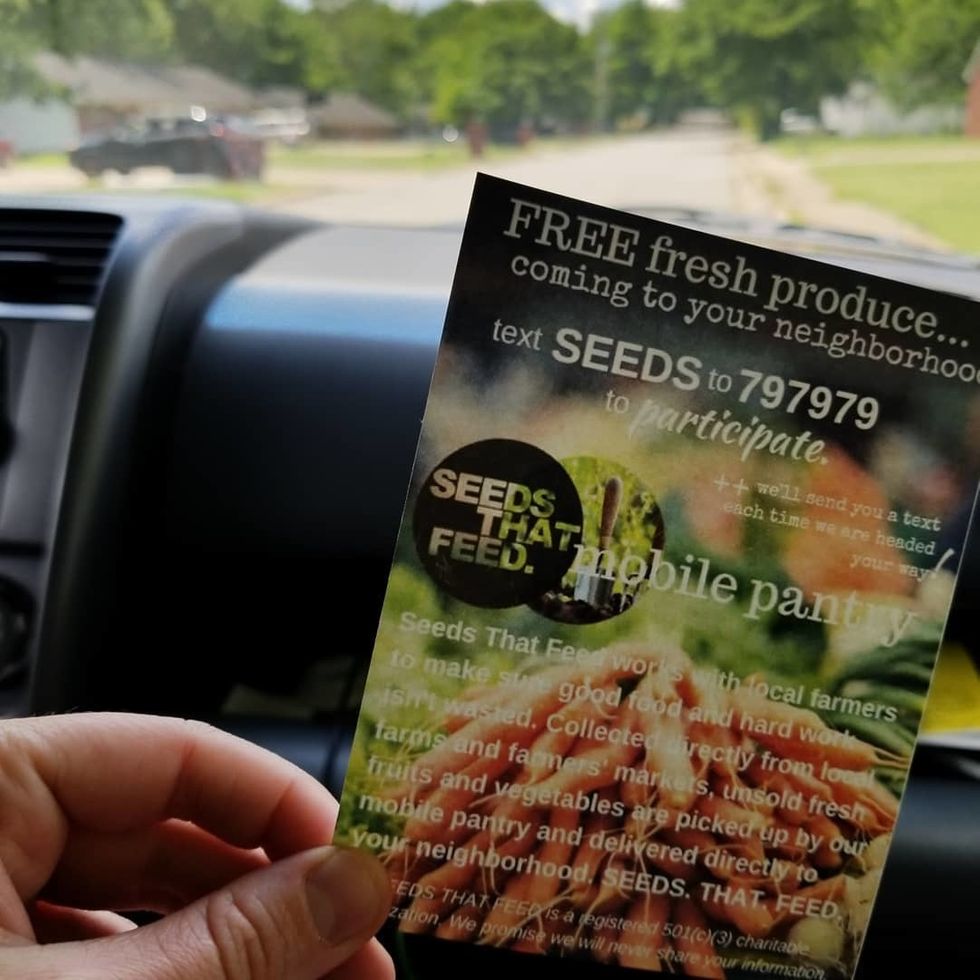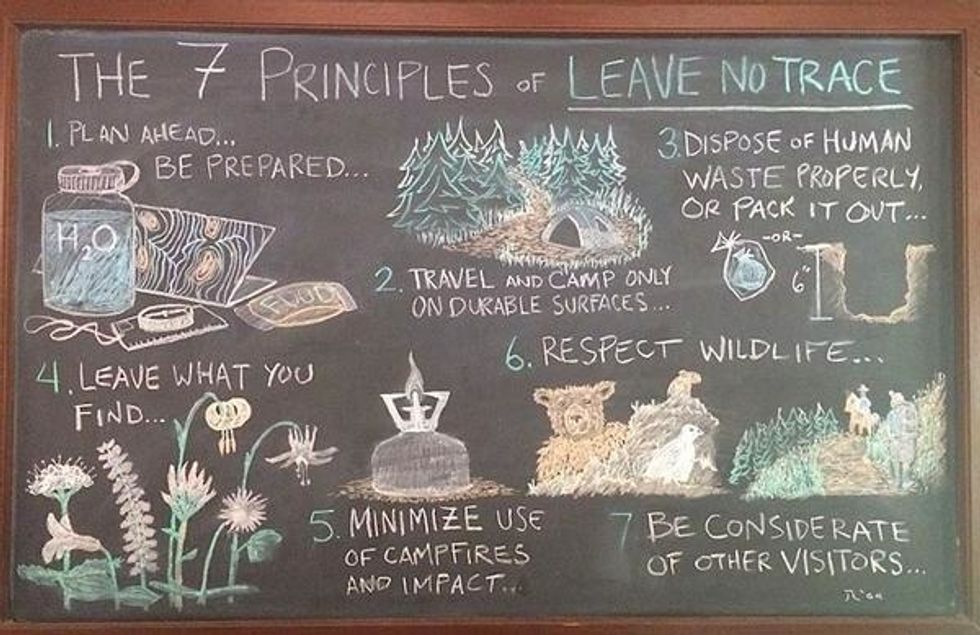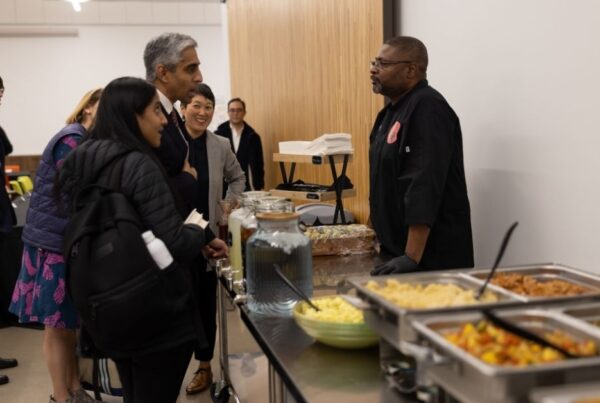In Northwest Arkansas, being eco-conscious is just our natural way of being.
Recently, the City of Fayetteville took a huge step towards their ultimate goal of moving to 100% clean energy by 2030. On November 20th, 2018 the Fayetteville City Council approved a 20-year agreement with top electric corporations (Ozarks Electric Cooperative and Today’s Power Inc.) to install the largest solar power system in Arkansas. This electric farm will be used to power two wastewater treatment plants (Noland Wastewater Treatment Facility and Westside Water Treatment Facility) and raise overall clean energy consumption by city facilities from 16 percent to 72 percent. This agreement moves Fayetteville closer to several goals in the Energy Action Plan that was adopted back in January 2018.

Local government is not the only place you’ll find Northwest Arkansas taking proactive steps to take care of the environment. Several local nonprofits remain laser-focused on small, everyday acts that everyone can take part in. Both Seeds That Feed and Tri Cycle Farms rescue tens of thousands of pounds of food each year through their food recovery programs and distribute it to those in need throughout the region—combating food waste and food insecurity at the same time.

The Buffalo National River and Hobbs State Park take every opportunity to educate hikers and campers about the principles of Leave No Trace, which provides guidance on how to enjoy the outdoors in a way that avoids human-created impacts. Additionally, the Buffalo River has spent the past two years on efforts to reduce their light pollution footprint in a bid to become an International Dark Sky Park. Also, the Beaver Watershed Alliance plans countless fun and informational volunteer events to keep our lake and rivers clean, while organizations like Ozark Off Road Cyclists actively organize “trail love” events that keep volunteers engaged in leaving a legacy through trail stewardship.

On the corporate level, Walmart continued their work with suppliers to prevent 1 billion metric tons of greenhouse gases from global value chains by 2030 through the Project Gigaton initiative. On the startup level, Food Loops was all over the region working with local businesses and organizations on zero waste initiatives to solve for the 80,000 tons of food that end up in a landfill every year in Northwest Arkansas.
Project Gigaton 101www.youtube.com














